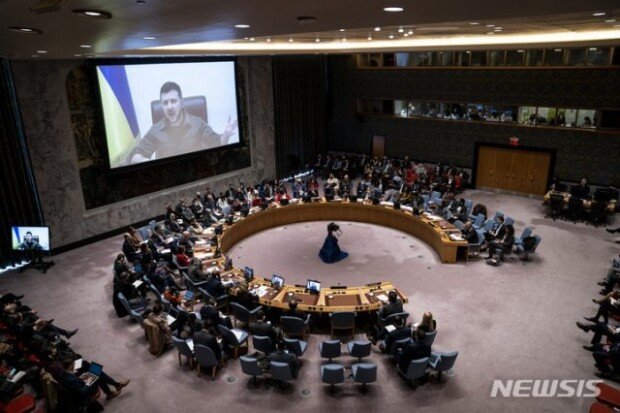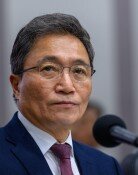UN moves to limit Security Council veto power
UN moves to limit Security Council veto power
Posted April. 28, 2022 07:48,
Updated April. 28, 2022 07:48

UN General Assembly adopted a resolution by consensus that seeks to keep in check the use of the veto by the five permanent members of the Security Council ― the United States, the United Kingdom, France, China, and Russia ― on Tuesday.
Such a resolution was adopted by consensus at the General Assembly held at UN Headquarters in New York. On behalf of 83 cosponsors, Liechtenstein introduced the draft resolution, which mandated the veto-casting state in the Security Council to give explanations for the exercise of the veto within 10 days. The member countries can debate whether such explanations are justifiable.
Although the resolution does not block the veto power at its source, it can put diplomatic pressure on the exercise of the veto by forcing the veto-caster to account for the circumstances behind the use of the veto. The resolution immediately came into effect.
Liechtenstein’s UN Ambassador Christian Wenaweser said that the resolution has the purpose of reflecting the voice of the countries having no veto power in matters of importance to global peace and security. U.S. Ambassador to the United Nations Linda Thomas-Greenfield also called the adoption of the resolution as “some good news” on her Twitter account.
The resolution on the Security Council veto lays the groundwork for keeping Russia in check. Since Russia launched its invasion of Ukraine, Russia has been exercising its veto on issues related to sanctions and condemnations on itself, thus paralyzing the UNSC operation. Ukraine’s President Volodymyr Zelenskyy challenged the United Nations to “close down.” The argument that the UN Security Council needs reform in entirety has garnered more support. The UN General Assembly passed a resolution condemning Russian invasion of Ukraine twice, but it has no legally binding force unlike UNSC resolutions. “For more than 40 years, reform of the UN Security Council has been debated but numerous efforts have failed,” reported the Associated Press. “[The resolution] marks the first step towards calling the global attention to the UNSC veto power.”
The resolution is expected to have influence on UNSC consultations on North Korea. Every time China or Russia exercises its veto on the UNSC sanctions on North Korea’s nuclear weapon tests or missile launches, the UN General Assembly will be convened. Accordingly, as North Korean matters are frequently discussed in the United Nations, China and Russia would become reluctant to exercise the veto.
Jae-Dong Yu jarrett@donga.com







